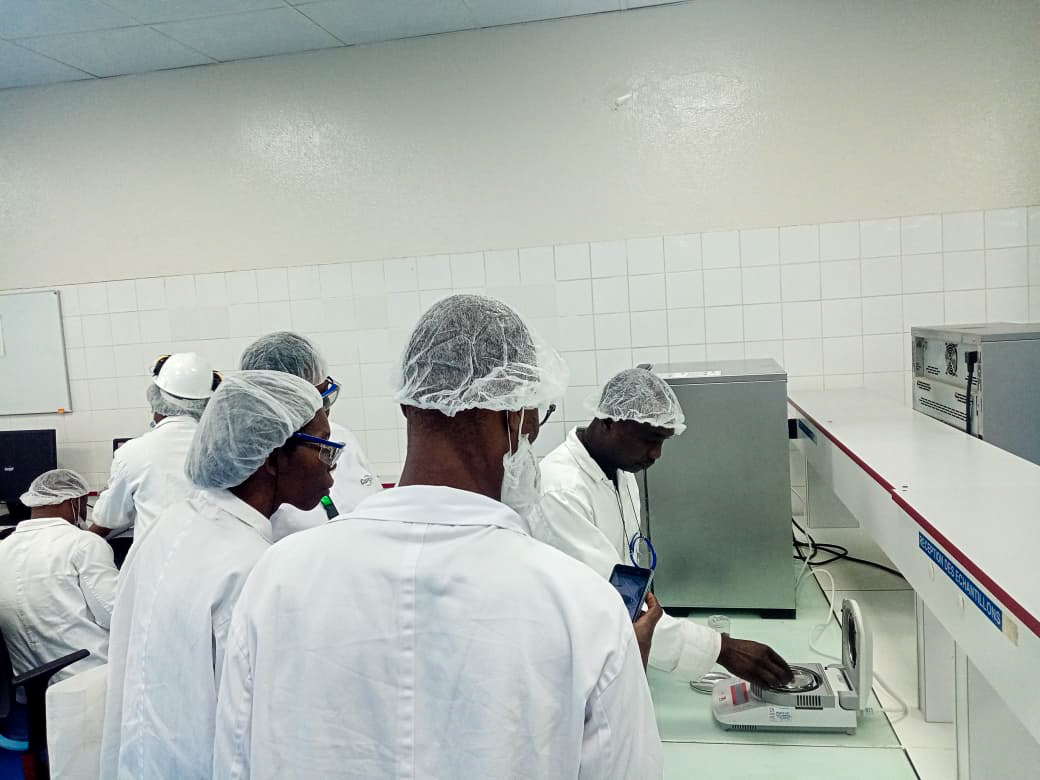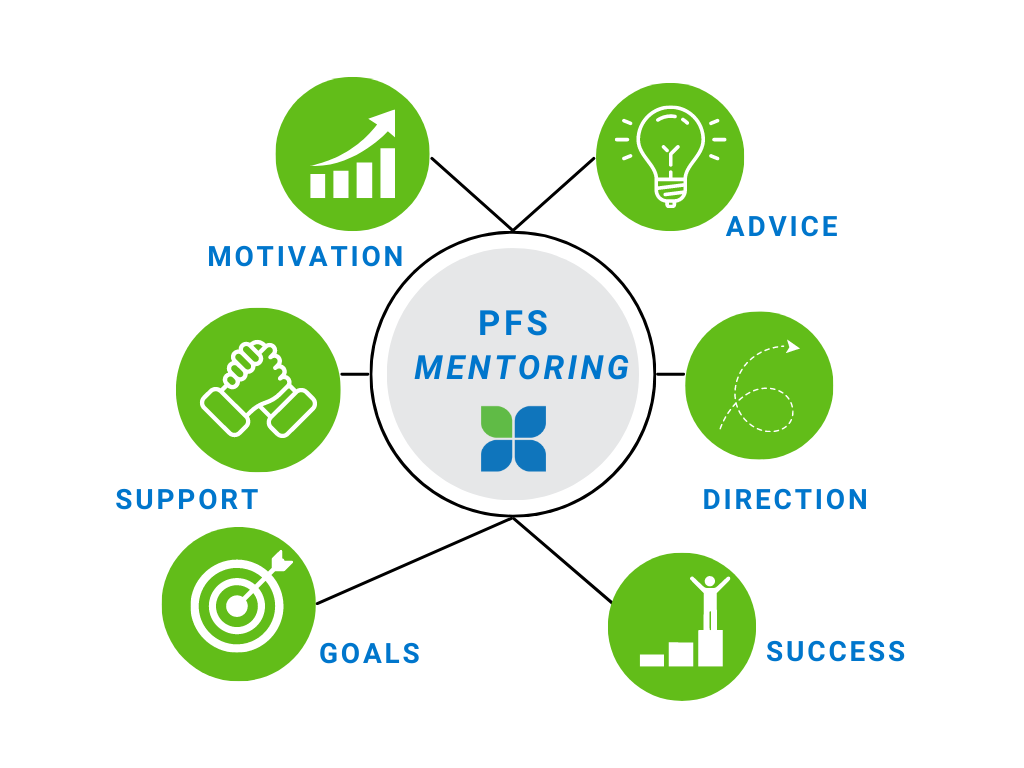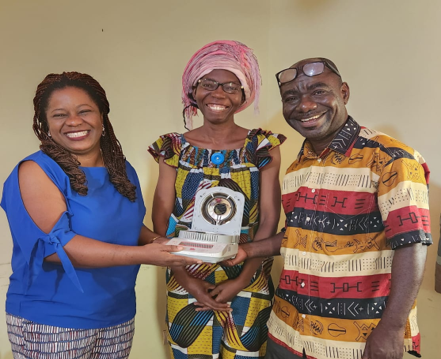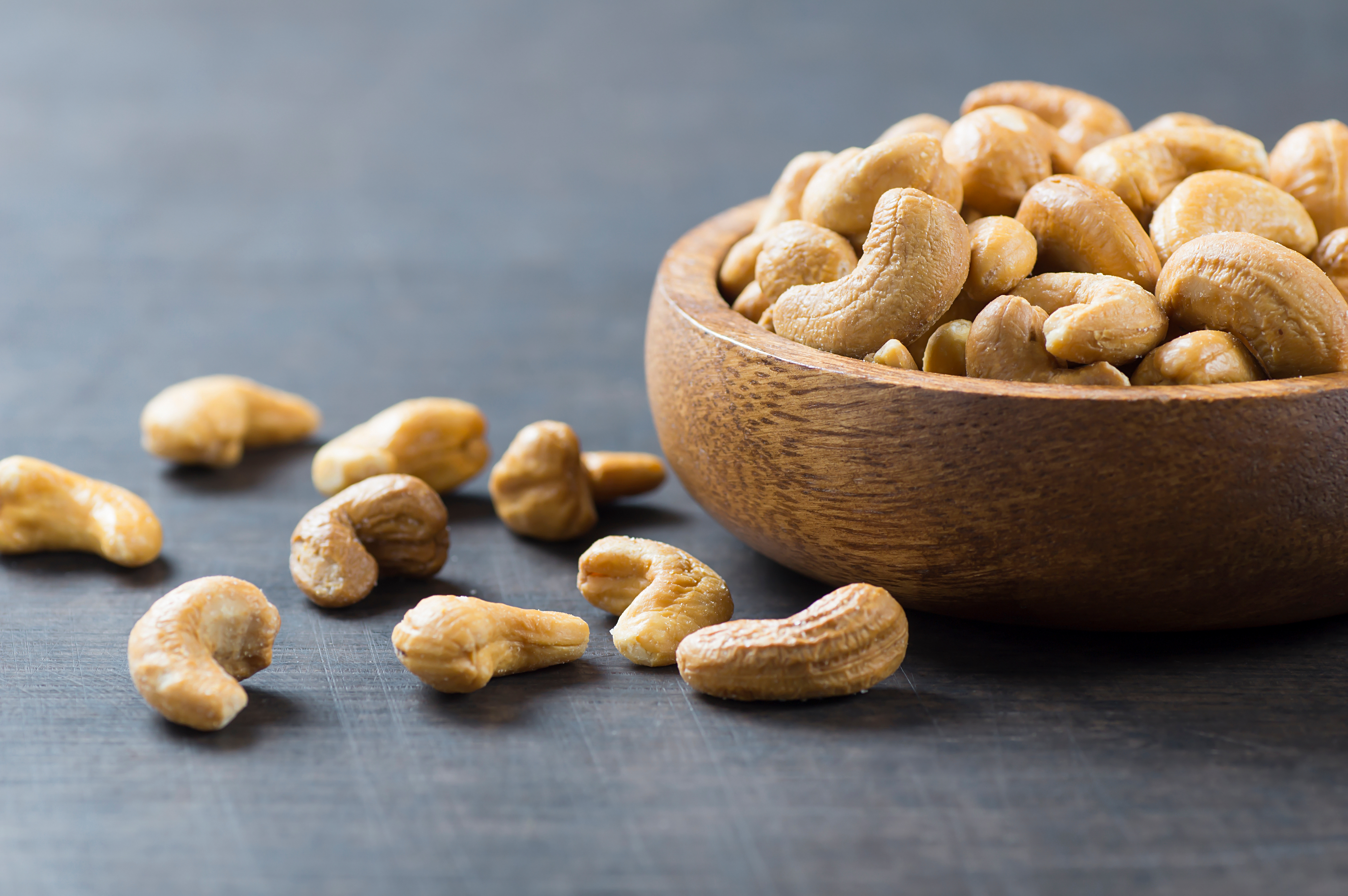Expanding Excellence Through Mentorships
Diana Mboya is a PFS apprentice who serves as a quality assurance officer with Abysinia Dairy in Kenya. Diana joined the company in 2023, after graduating with a BSc in Food Science and Technology from the University of Nairobi. As part of her apprenticeship program, Diana was paired with a mentor, Xin Stannard, a co-pack quality engineer with Ardent Mills. Xin’s approach to the mentorship was to get to know her mentee well enough to understand her needs and challenges and leverage her strengths and expertise to help her grow.
This month, their year-long mentorship draws to a close and Diana has some great feedback to share. "I want to give a huge thanks to PFS for the opportunity granted to me and especially the mentorship program. It has been invaluable for me." Diana's relationship with her mentor has been characterized by understanding, support and a shared commitment to growth. She shares, "I am pleased with the way the mentoring scheme has progressed and I feel that I have benefited greatly from being able to discuss not only work-related topics, but general life issues.”
Xin provided guidance to Diana on the relevant professional skills she could build. With her mentor's advice, Diana delved into a series of online courses, obtaining certifications in ISO 45001:2018, ISO 9001:2015, ISO 14001:2015, Food Safety and HACCP level 2 (sponsored by PFS). She is currently working on an ISO 17025:2017 certification. Xin also took the extra step of investing in Diana’s professional development by sponsoring an online training course on Infographics and Data Visuals.
Diana acknowledges the personal touch in her mentorship, sharing, "I feel so comfortable talking to my mentor; it's amazing. I couldn’t be happier with the quality of mentorship I have received and with the way that this was all organized centrally by PFS." Beyond certifications, Xin has helped Diana to refine her resume and has played a pivotal role in shaping her perspective on career and success. Reflecting on the mentorship's profound impact, "My mentor has been a game-changer for me. Thank you so much PFS."
Diana's and Xin’s journey exemplifies the essence of a successful PFS mentorship – a collaborative effort of two parties learning from each other and growing together. As we celebrate stories like hers, we are reminded of the true power and impact of mentorship.
Super Spicy Recipe for Success
Jonathan Griebel is a food industry veteran with 40 years of diverse experience. He started off as a chef for the first 15 years of his career and then moved into food manufacturing. He is currently based in the United States as a food scientist in Cargill’s protein group.
Jonathan has been a dedicated PFS volunteer for the last ten years, using his skills and expertise to help African food processors develop sustainable businesses. Jonathan grew up in Nigeria, where his parents served as missionaries and he has always tried to follow their example of giving back to others. Last year, Jonathan and a packaging food scientist from General Mills, were paired with a spice-processing company in Côte d’Ivoire called Société Ivoirienne de Transformation du Vivrier, also known as SITRAV. The company was having shelf-life issues with their packaged spice line. The spices developed mold and changed color a few months after production.
The volunteers went through SITRAV’s production process - from reception of the raw materials to sorting, grinding, drying and packaging - to try to identify the issues. It was through this that Jonathan observed inconsistencies in the moisture content and quality of the spices after they were dried. “It was a really interesting project for me because it took me back to my core food science experience. With our combined understanding of the general parameters of food science as volunteers, we identified factors such as the pH and packaging, which were contributing to the deterioration of the spices,” Jonathan said. However, they discovered that SITRAV’s key challenge was the moisture content of their product. “We found out that the team tested moisture content by hand, which was not very effective.”
The volunteers concluded that a limit of ten percent moisture in the spices would be acceptable. However, this precise measurement could only be done with a moisture analyzer. Jonathan connected with his colleagues in Cargill Cocoa in Côte d'Ivoire to ask for their support. “I just went on to the Cargill website and sent an email to the quality assurance team in Côte d’Ivoire, none of whom I knew before, and in typical Cargill fashion they were very willing to help SITRAV out.”
The team had a moisture analyzer to spare which they graciously donated to SITRAV. And they didn’t stop there. They also trained the SITRAV team on the use, calibration and maintenance of the equipment.

The project’s result had a positive domino effect. The elimination of the mold led to longer shelf life and fewer complaints from suppliers. This allowed SITRAV to expand their distribution and gave them access to supply mainstream grocery stores.
Mr. Béni Ngouan, operations director of SITRAV shared how valuable this project was to them. “The support was very enriching for us. Thanks to the analysis of our production process carried out by the volunteers, we improved our hygiene practices to reduce the risk of contamination. Thanks to them too, we were supported by Cargill Côte d’Ivoire. We are very grateful to the volunteers and to PFS,”he said.
For Jonathan, “It’s great that Cargill gives us the opportunity to work on these projects with PFS. SITRAV’s founders were so pleasant to work with. I also got the chance to practice some of the French I’ve picked up over the years and learned more about Côte d’Ivoire and Cargill’s cocoa business in the country. Volunteering on projects like this makes me a better, happier and more valuable Cargill employee.”
Q+A with Volunteer Client Lead Gabby Kouneva
Tell us about yourself and what you do at General Mills
My name is Gabby Kouneva and I am a team leader in the General Mills pet department at our research and development center. I currently live in Minnesota with my three cats and I love to travel, hike, read a good mystery novel, and watch Formula One racing!
What was your main motivation for volunteering with PFS?
I wanted to help make a more direct impact on smaller companies outside of General Mills.
What has been your most interesting volunteering/project experience?
I got to work with a company in Tanzania that was trying to eliminate yeast and mold in their yogurt. It was very interesting for me since I have never worked with dairy and I learned a lot about making yogurt from the other volunteers and our client.
What skills have you developed as a client lead?
I have picked up some really good project management skills - leading teams across multiple time zones and keeping everyone on track and the project moving forward. I have definitely applied these learnings to my job as I lead through big projects and keep the momentum going.
What's your favorite part of volunteering?
Meeting, getting to know, and working with many different people around the globe.
What would you say to any colleague thinking about volunteering with PFS?
Sign up and volunteer! Sign up for something that you have passion around so it does not feel like work, or sign up as a client lead for something that you are unfamiliar with so you can broaden your knowledge!
Innovation in Action: Coprodigo's Quest for Delicious Cashew Creations
In the world of food production, turning surplus ingredients into new, delicious products is a challenge that Co-op Ca Coprodigo,(“Coprodigo”) has enthusiastically embraced. The company, based in Côte d’Ivoire currently makes a diverse range of cashew-based products, including flavored cashews such as pepper, salt, and chocolate-coated, as well as creamy cashew butter.
They reached out to PFS for insight on how to transform surplus crushed cashews from their production process into innovative, tasty snacks. PFS connected them with Samantha Klein-Vidal, a research and quality technician at Ardent Mills.
Samantha and her co-volunteer from Cargill brainstormed and shared an impressive array of 21 recipes. From meringue toffees to cashew nut brittles, their brainstorming sessions produced culinary delights. From the numerous recipes, the Coprodigo team selected four recipes that stood out: a sugar and honey bar, chocolate candy with cashew, cashew cookie, and cashew clusters.
Coprodigo was very responsive and rapidly went into the testing phase for their upcoming star, Cashew Clusters. This exciting new product is a testament to the power of collaborative brainstorming and innovation. From discussions on the project call, the company has also explored additional avenues of processing cashew, such as cashew nut oil, roasted and unroasted cashew flour (potentially for mixing with baby food), cashew nut brittles, biscuits and coated cashew snacks.
Anne Tolou, marketing manager at Coprodigo, expressed her gratitude for the creative recommendations provided by Samantha and the volunteer team, emphasizing the company's commitment to staying fresh and expanding in the market. "These recipes will help us get there," she said with optimism.
Coprodigo's mission to add value to their surplus crushed cashews is an inspiring example of sustainability and innovation in the food industry. Samantha looks forward to the success of Coprodigo’s introduction of these new creations to new markets.
Ardent Mills Volunteer Dives in to Make an Impact
“There will never be the right time unless you make the time right. Dive in. It’s never too late to help!”
That’s the message Andrew Wilcox, logistics director at Ardent Mills would share with any of his colleagues who are considering volunteering with PFS. Andrew himself first heard of PFS about six years ago but hesitated about getting involved due to other work commitments. In the first thirteen years of his career, he worked in operations, before moving into supply chain in 2020. Motivated by the idea of sharing his expertise to positively impact the food system in other countries, Andrew finally decided that there would really never be a “perfect time” and committed to volunteer with PFS.
For about a year, Andrew has volunteered as a Client Lead (project manager) with Winnie's Pure Health, a female-led food processor in Kenya that strives to provide high quality, healthy food products like baby porridge flours, maize, millet and wheat flour to its consumers across East Africa. As the Client Lead, Andrew supervised the project teams, managed project timelines, and acted as a point of contact for the volunteer teams and client. Together, they have supported Winnie's Pure Health on several projects including a packaging solutions project for blended flour, food safety and quality assessment of flour and an alternative ingredients project.
“It has been a new experience for me as the topics and projects we worked on with Winnie’s largely fell outside of my areas of expertise. However, this allowed me to hone my skills in asking insightful questions to create clarity in these areas.” Andrew’s favorite part of serving as a Client Lead has been interacting with a different culture while trying to help them succeed with performance and innovation. Andrew also noted that the Client Lead role has refined his ability to coordinate and steer discussions and reinforced the importance of setting clear objectives. “l have learned a lot, not only about our client, but about myself during this period of volunteering. It has definitely been rewarding”.


